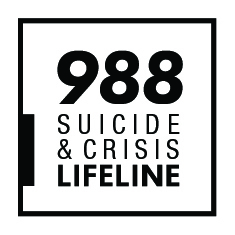Mental Health Matters: Recovery is possible for those battling addiction
I recently saw a meme on social media that said, “I’ve never met a strong person with an easy past.”
When I first met Kelly Stoudt when I started working at West Michigan Community Mental Health last year, I knew right away that she was a strong person. As a peer recovery coach at CMH, Kelly shares her personal story of recovery with consumers who have entered our substance use disorder program. The outpatient program is committed to assisting and support individuals as they work to achieve remission and live in recovery.
For Kelly, she’s been in recovery for ten years. Her story goes back to when she was first introduced to drugs and alcohol at age 19.
“It started with marijuana and alcohol,” Kelly explained. “But then went into a downward spiral as the drinking and marijuana quickly turned into using crack cocaine and pills. I was abusing all sorts of opiates, but it was the crack cocaine that really got out of control. It was nothing but straight partying all the time.”
The substance abuse wasn’t something that anyone could have predicted for Kelly.
“There weren’t any outside factors that led me to drugs,” she said. “I grew up in a Christian home. I wasn’t abused or neglected. I didn’t’ have any sort of childhood trauma. I was the valedictorian of my high school class. I really had my life together. I met someone who introduced me to drugs and I got hooked.”
With three young kids, Kelly was trying to manage her addiction while also being a mother, but the drugs took priority.
“My kids really didn’t have a mom,” said Kelly. “I wasn’t getting them ready in the morning. I wasn’t making them breakfast. I wasn’t even paying our bills.”
Life took a dramatic change for Kelly on April 28, 2010. After a night of drug use, a houseguest raped and murdered Kelly’s 7-year-old daughter, Chloey.
“When Chloey was killed, I realized I had lost everything. Chloey was gone and my other two kids were taken away from me. I did a lot of damage and put my family through a lot of trauma. But Chloey was put in my life for a reason. She was a gift and taught me a huge lesson. I know I can never do drugs again because if I did, then she would have died in vain. She’s made me who I am today. Back then, I didn’t like myself and I was using drugs to mask it.”
After completing a jail sentence and spending time in an inpatient treatment center, Kelly has become sober. She has regained custody of her two children and joined the staff at CMH in February 2019.
“CMH was a huge part of my recovery,” Kelly said. “I received services at CMH. The care I received is one of the reasons I wanted to work here. This is a way that I can give back as I continue my own recovery journey.”
Kelly points out that a lot of people are apprehensive to pick a path toward recovery because they are afraid it’s not going to work.
“Just start somewhere and we will help you get to your end goal,” she said. “Recovery is different for everyone and we will customize our services toward each person’s recovery journey. Recovery is not a one size fits all program. We will meet you where you’re at and walk alongside you as you go through your journey. We’re here as a support to guide people in the right direction.”
Kelly shares her story as we celebrate Recovery Month during September. Now in its 31st year, Recovery Month celebrates the gains made by those in recovery, just as we celebrate improvements made by those who are managing other health conditions such as hypertension, diabetes, asthma, and heart disease.
Over 3 million people in the U.S. over the age of 12 receive some kind of substance use treatment each year. In addition, it’s estimated more than 21 million people are in need of substance use treatment. Considering these statistics, you likely know someone who is fighting addiction.
West Michigan Community Mental Health can help. If you or someone you know is struggling with drug or alcohol addiction, call 1-800-992-2061 to learn about addiction treatment and recovery options.
Alan Neushwander is the Director of Public Relations and Customer Service at West Michigan Community Mental Health. He can be reached at (231) 843-5440 or email alann@wmcmhs.org
 or
or 